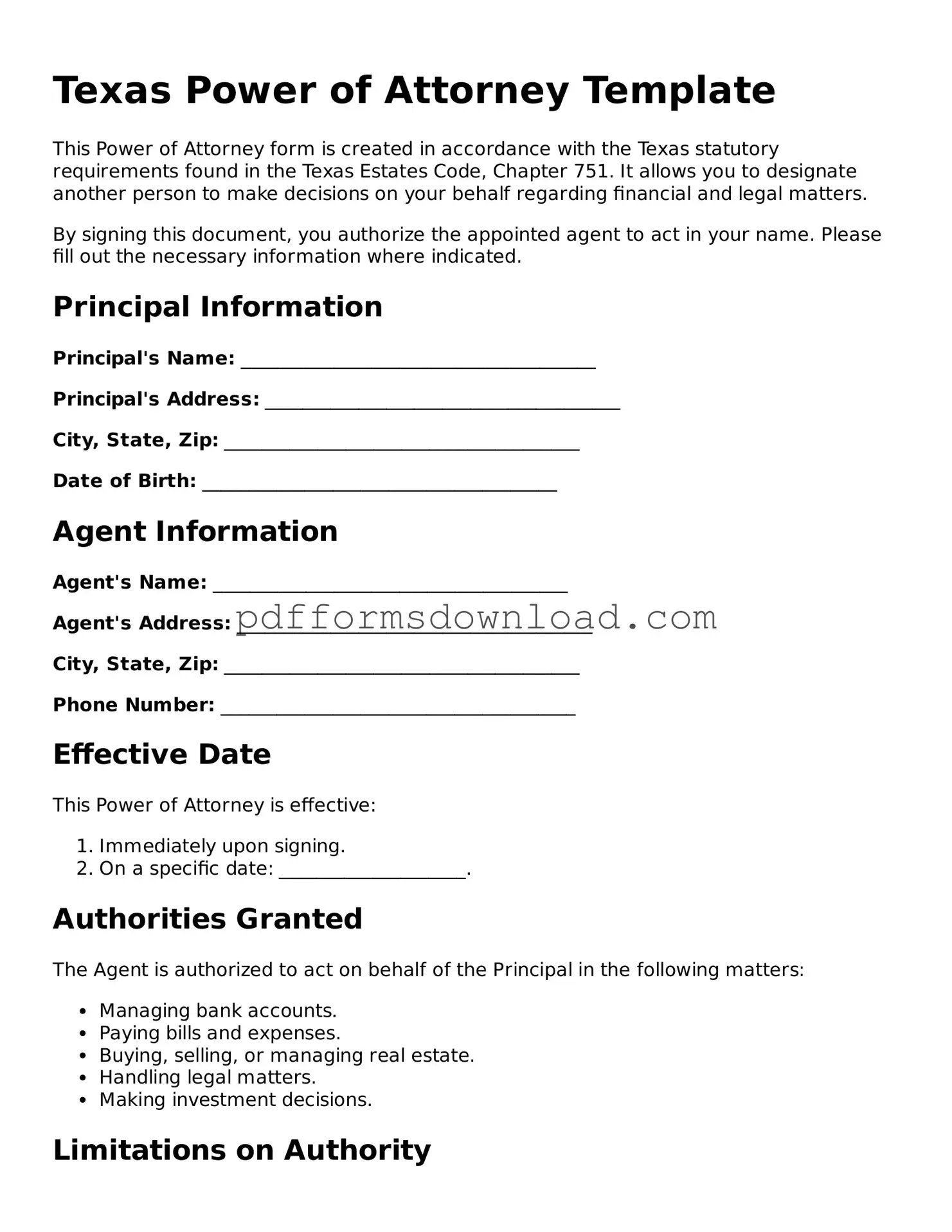What is a Power of Attorney in Texas?
A Power of Attorney (POA) in Texas is a legal document that allows one person, known as the principal, to designate another person, called the agent or attorney-in-fact, to make decisions on their behalf. This can include financial, legal, or medical decisions, depending on the type of POA created.
What types of Power of Attorney are available in Texas?
Texas recognizes several types of Power of Attorney forms, including Durable Power of Attorney, Medical Power of Attorney, and Limited Power of Attorney. A Durable Power of Attorney remains effective even if the principal becomes incapacitated. A Medical Power of Attorney specifically allows the agent to make healthcare decisions for the principal. A Limited Power of Attorney grants the agent authority for specific tasks or a limited time frame.
How do I create a Power of Attorney in Texas?
To create a Power of Attorney in Texas, the principal must be at least 18 years old and of sound mind. The document must be in writing, signed by the principal, and notarized. It is advisable to specify the powers granted to the agent clearly. Using a template or consulting an attorney can help ensure that the document meets legal requirements.
Can I revoke a Power of Attorney in Texas?
Yes, a Power of Attorney can be revoked at any time by the principal, as long as they are still competent. To revoke a POA, the principal should create a written revocation document and notify the agent and any relevant institutions or individuals. This ensures that all parties are aware that the authority has been terminated.
What happens if the agent is unable or unwilling to act?
If the designated agent is unable or unwilling to fulfill their duties, the principal can appoint a new agent through a new Power of Attorney document. If the principal is incapacitated and has not designated an alternate agent, a court may need to appoint a guardian to manage the principal's affairs.
Do I need a lawyer to create a Power of Attorney in Texas?
While it is not legally required to have a lawyer to create a Power of Attorney in Texas, consulting with one can be beneficial. An attorney can help ensure that the document is properly drafted, meets all legal requirements, and addresses the principal's specific needs and concerns.
Is a Power of Attorney valid in other states?
A Texas Power of Attorney is generally valid in other states, but some states may have specific requirements or forms. It is advisable to check the laws of the state where the POA will be used to ensure compliance. In some cases, a new POA may need to be executed to meet that state's requirements.
Can an agent be compensated for their services?
In Texas, an agent can be compensated for their services if the Power of Attorney document explicitly states that compensation is allowed. If the document does not mention compensation, the agent is typically expected to serve without pay. It is important to clarify this aspect in the POA to avoid misunderstandings.
What are the responsibilities of an agent under a Power of Attorney?
The agent has a fiduciary duty to act in the best interests of the principal. This includes managing the principal's finances responsibly, keeping accurate records, and making decisions that align with the principal's wishes. The agent must avoid conflicts of interest and cannot use the principal's assets for personal gain.
What should I do if I suspect my agent is abusing their power?
If there is suspicion of abuse or misconduct by the agent, it is crucial to take immediate action. The principal can revoke the Power of Attorney if they are still competent. If the principal is incapacitated, a court can be petitioned to remove the agent and appoint a guardian to protect the principal's interests.

